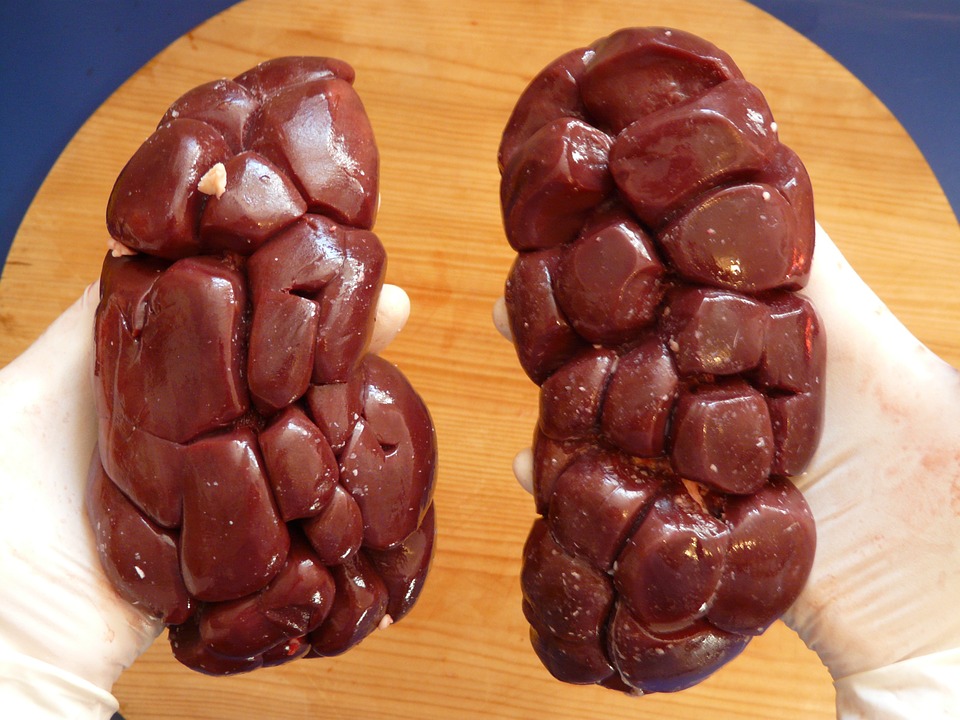Exploring The Crucial Connection Between the Brain And The Kidneys!
“A kidney disorder impacts negatively on the brain and a brain disorder invariably impacts negatively on the kidneys”
The brain and the kidney are the most important organs in the human body and the heart knows it! The heart is a pump that supplies blood to the various organs in the body and it ensures the brain receives 40 per cent and the kidney receives 25 per cent of the entire blood in the body. This is despite the tact that the brain constitutes just two per cent, while the kidney forms just 0.2 per cent of the entire body.
The Brain And Kidneys Are ‘Blood’ Brothers
In this light, these pampered organs, the brain and the kidney, are literally ‘blood’ brothers. In addition, like many brothers, they share a lot of ‘crosstalk’ and communicate with each other frequently at a cellular level. Like brothers, they also feel for each other, sympathise with each other and help each other to cross the various hurdles of life. Consequently, a kidney disorder impacts negatively on the brain and a brain disorder invariably impacts negatively on the kidneys.
The Chemical Storm In The Body
Surprisingly, in this brotherly relationship, the kidney plays the role of an elder brother, often dictating to the brain how to behave. The kidney is the master chemist of the body that maintains a tight control over the chemical equilibrium of the body. When the kidneys are damaged, the body undergoes a chemical storm, as a result of severe chemical imbalances. Thus, the levels of certain bad chemicals rise and the levels of good chemicals drop.
The abnormal levels of these chemicals can cause brain dysfunction resulting in confusion, forgetfulness, tremors, paralysis, weakness, seizures and in extreme cases even coma and death. These chemicals include sodium, calcium, urea, magnesium, and creatinine among others. The derangement of these chemicals, whether it is an increase or decrease in levels, will result in brain dysfunction.
The Blood-Brain – Barrier
However, what’s interesting is that even though changes in levels of brain chemicals cause problems, rapid correction of these levels cause more problems. For example, if a person’s sodium levels are low, they will have progressive nerve weakness, confusion, seizures, coma and ultimately death. lithe sodium levels are corrected too rapidly, they will get progressive limb paralysis, confusion, stupor, breathing difficulty, coma and death.
This peculiar phenomenon is seen during rapid correction of most kidney brain related chemicals, be it sodium, urea or creatinine. At the risk of getting technical, the reason for this strange phenomenon of damned if you do… and damned if you don’t, is something called the blood-brain – barrier.
The blood-brain – barrier is not a true physical barrier but a physiological (functional) barrier between the blood and the brain. Normally, the concentration of various chemicals would be the same In the brain and the blood duo to free and easy passage between them.
However, the blood-brain – barrier does not permit easy movement of chemicals from the blood compartment to the brain compartment and vice versa. This is an evolutionary, protective mechanism which prevents infections and other harmful chemicals from entering the brain and damaging it.
Nevertheless, like always, too much of a good thing does no good and the barrier can sometimes backfire. Thus, the barrier also prevents good chemicals from entering the brain and this could cause brain injury. The trick is to gradually correct chemical deficiencies that affect brain function. Rapid correction is more dangerous and correction should be done slowly, over a period of days and not hours.
Complications Of Kidney Disease
Kidney disease predisposes a person to brain strokes and brain haemorrhages or internal bleeding. Kidney disease often leads to depression and sometimes even suicidal attempts. This is because happy hormones like serotonin and dopamine are produced in smaller amounts, while ‘sad’ hormones like prolactin are produced in larger amounts.
There is a tendency to believe, even among doctors, that the brain refers only to the structures contained within the skull. Actually, in medicine, brain also infers the spinal cord and the nerves that supply the skin and muscles. Kidney disease causes bone disease and fractures which can compress the spinal cord and cause various forms of paralysis.
Kidney dysfunction causes overproduction of toxic chemicals too, which can damage the nerves leading to numbness, a pins and needles sensation and cramps. Kidney patients are also afflicted with a phenomenon called ‘restless legs’ syndrome whereby, the patient cannot sleep because there is a need to constantly move the feet, as keeping them at rest causes pain and discomfort.
We now know how kidney disease affects brain function. However, the reverse is also true. The seat of urine control is the brain. Brain disorders lead to urinary problems, which result in infection and subsequent kidney damage. Like all other organs, the kidneys are supplied by nerves and brain damage leads to impaired nerve supply to the kidneys, ultimately causing kidney damage.
